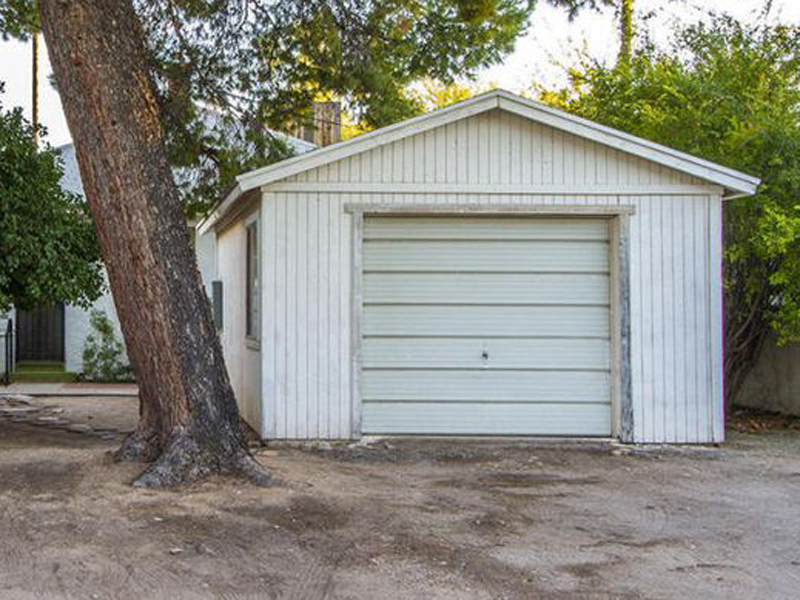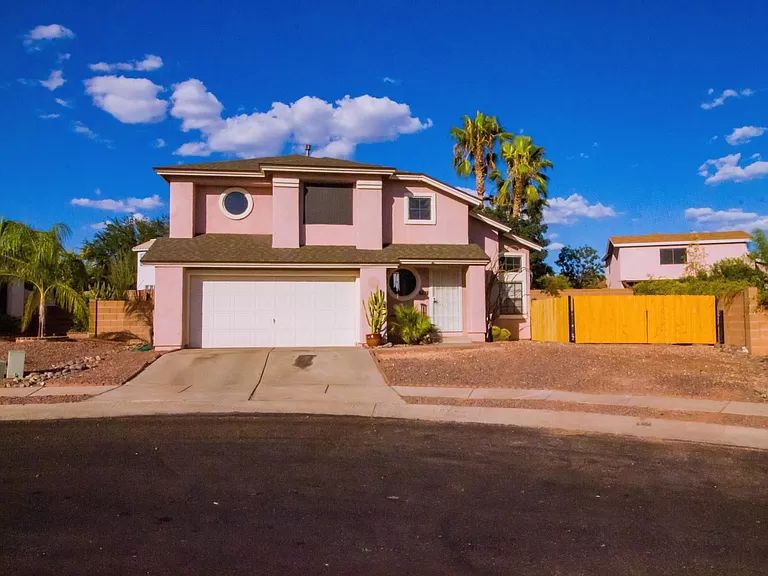Is Your Garage Door Stuck? Below's What to Do Initial
When your garage door won't open up, start with these vital safety and security checks prior to trying any fixings. First, ensure no person is standing near the door and that vehicles are free from the opening. Search for evident indicators of damage like busted panels, bent tracks, or hanging cords. If you see a snapped spring or drastically harmed parts, stop instantly and call an expert—-- these repair services need specific devices and expertise to manage securely.

Check These 6 Points Prior To Calling a Professional
Prior to thinking you need pricey repairs, go through this fast diagnostic list that fixes most garage door issues:
-
Source of power: Confirm the opener is connected in and the electrical outlet is working
-
Remote batteries: Change dead batteries in your remote control
-
Hands-on lock: Check if someone unintentionally involved the hands-on lock
-
Blockages: Search for debris obstructing the door's path or sensing units
-
Emergency release: Guarantee the red emergency situation cord hasn't been drawn
-
Circuit breaker: Confirm the garage circuit hasn't stumbled
These straightforward checks settle around 70% of garage door issues without calling for expert intervention.
10 Common Factors Your Garage Door Won't Open
Understanding why your garage door opener isn't functioning helps you choose the right service. Right here are the most constant reasons homeowners experience:
Dead remote batteries stand for the simplest repair—-- when batteries pass away, the remote can not send signals to the opener. Power interruptions or tripped breakers cut power to the electric motor. Broken springs protect against the door from raising correctly and need instant expert interest. Sensor imbalance reasons safety systems to obstruct door procedure. Track obstructions quit rollers from moving efficiently. Electric motor overload triggers automated shutoffs when the opener detects resistance. Limitation button problems perplex the opener concerning door setting. Cord damages disrupts the lifting system. Weather-related problems impact door activity throughout extreme temperature levels. Component wear from age progressively decreases system performance.
Problem # 1: Dead Remote Control Batteries
When your wall surface switch works but your remote doesn't, dead batteries are normally the offender. The majority of garage door remotes make use of either 3-volt lithium or 12-volt alkaline batteries. Remove the back cover of your remote and check the battery kind. Replace with fresh batteries and test the remote. If it still does not work, you might need to reprogram it to your opener. Consult your opener's guidebook for specific reprogramming guidelines, as the process differs by supplier.
Problem # 2: Power Supply Issues
Garage door power issues frequently originate from loosened connections or stumbled circuits. Inspect that the opener is firmly connected into its outlet—-- vibration can loosen up links in time. Check the electrical outlet with an additional device to validate it's functioning. Analyze your home's breaker box for stumbled circuits, particularly if you've experienced storms or power fluctuations. GFCI outlets might have stumbled and need resetting. If the opener has power but will not react, the concern most likely lies somewhere else in the system.
Trouble # 3: Broken or Damaged Springs
Busted garage door springs are amongst one of the most unsafe parts to take care of. If you hear a loud bang from your garage or see the door really feels very heavy when attempting to raise manually, a springtime has actually likely snapped. Torsion springs run horizontally over the door, while expansion springtimes remain on either side. Never ever attempt springtime fixings yourself—-- these parts save remarkable stress that can create significant injury or death. Professional replacement normally costs $150-$300 but ensures your security.
Trouble # 4: Blocked Safety And Security Sensors
Modern garage doors feature safety and security sensing units that prevent closure when items are identified. These sensing units can stop the door from opening up if they're unclean, misaligned, or obstructed by particles. Tidy sensing unit lenses with a soft fabric and guarantee absolutely nothing obstructs the unseen beam between them. Check that sensors are correctly aligned—-- a lot of have sign lights that reveal link condition. Sensing unit troubles usually fix with easy cleaning and adjustment.
Problem # 5: Track Obstructions or Damage
Garage door tracks guide rollers as the door goes up and down. Dirt, particles, old grease, or little items can jam the system. Evaluate tracks visually and remove any kind of obstructions with a brush or cloth. Seek damages, bends, or warping that might hamper smooth procedure. Small track changes are feasible for useful homeowners, but considerable damages calls for professional repair to avoid more problems or safety hazards.
Trouble # 6: Garage Door Opener Motor Issues
When the garage door motor runs yet the door doesn't relocate, several problems could be liable. The motor may be overloaded and turning off as a precaution. Equipment wear, especially in older devices, can protect against correct procedure. Chain or belt drive troubles influence power transmission. If you listen to unusual grinding, clicking, or humming sounds, stop using the opener quickly. Electric motor repairs often set you back more than substitute, particularly for systems over one decade old.
Detailed Do It Yourself Troubleshooting Guide
Follow this methodical approach to garage door troubleshooting while prioritizing safety and security throughout the procedure:
Step 1: Examine the wall surface switch first. If it works yet the remote does not, focus on remote problems. If neither works, check power supply.
Step 2: Examine the hand-operated launch cable. If it's been drawn, the opener is disengaged from the door. Press the trolley back to reconnect.
Step 3: Manually test the door by disengaging the opener and trying to lift the door by hand. It must move efficiently and stay in location when half-open.
Tip 4: Evaluate visible parts for damage, paying unique focus to springs, cords, and tracks.
Tip 5: Examine all security features consisting of sensing units, limitation switches, and auto-reverse features.
Step 6: Test different controls (remote, wall surface button, keypad) to separate the problem source.
Constantly wear safety glasses and job gloves when executing inspections, and never ever attempt repair services on springs or high-tension components.
When to Call a Specialist vs. DIY Solutions

Understanding when to call a garage door professional versus trying do it yourself fixings protects both your safety and security and your pocketbook. Manage these problems on your own: dead remote batteries, power supply issues, minor track cleansing, sensing unit cleansing and placement, and fundamental lubrication.
Never ever attempt these repairs yourself: springtime substitute or modification, cord repair services, significant track adjustment, electrical circuitry issues, opener electric motor replacement, or any repair including high-tension elements. Specialist specialists have actually specialized tools, training, and insurance to deal with dangerous repair work safely.
Think about repair service expenses versus substitute expenses, specifically for doors over 15 years old. Modern garage doors provide far better safety features, energy performance, and dependability than older models.
Emergency Garage Door Solutions
When you're stuck to a garage door that will not open up and require prompt accessibility, follow these emergency treatments:
Handbook Procedure: Pull the red emergency situation release cable to disengage the opener. This allows hands-on operation however needs correct strategy to prevent injury. Lift the door slowly and uniformly, making use of leg muscles rather than your back. A lot of household doors weigh 100-150 extra pounds, making them workable for many grownups.
Short-lived Solutions: If the door opens up manually yet will not keep up, prop it open with sawhorses or clamps—-- never use your body or automobiles as assistances. For doors that will not close completely, ensure the opening is secured if you must leave.
Emergency situation Solution: Numerous garage door companies use 24/7 emergency situation service for situations involving safety issues, caught lorries, or total system failings. While more pricey than regular service phone calls, emergency situation repair work offer instant services when required most.
Safety Caution: What NOT to Do
Garage door security calls for recognizing dangerous fixings that must never ever be attempted by homeowners:
Never ever try to repair springs—-- they save sufficient energy to cause deadly injuries when they snap or are improperly managed. Do not force a stuck door—-- this can damage the opener, tracks, or door panels, producing a lot more pricey problems. Stay clear of bypassing safety and security attributes—-- sensors and auto-reverse mechanisms protect against major injuries and residential or commercial property damage.
Do not ignore unusual noises—-- grinding, scraping, or banging audios indicate troubles that worsen in time. Never ever utilize the door if cords are frayed or broken—-- the door could fall unexpectedly. Don't try electric fixings unless you're a qualified electrical expert—-- garage door openers make use of both 120V house existing and low-voltage control circuits.

Precautionary Maintenance to Avoid Future Troubles
Regular garage door upkeep protects against most usual troubles and expands system life-span dramatically:
Regular monthly Tasks: Visual assessment of all elements, checking auto-reverse security features, inspecting and tightening hardware, and cleaning tracks and sensors.
Quarterly Jobs: Lubricating all moving get rid of proper garage door lube, screening guidebook procedure, and examining weather condition sealing.
Yearly Jobs: Professional assessment and tune-up, springtime change if required, and opener upkeep including belt or chain adjustment.
Seasonal Jobs: Getting ready for weather condition extremes, checking insulation, and readjusting opener setups for temperature level changes.
Constant maintenance prices far less than emergency situation repairs and makes certain reliable operation year-round.
Garage Door Won't Open Frequently Asked Questions
Why will not my garage door open with the remote however deals with the wall button?
This normally shows dead remote batteries, signal interference, or the need to reprogram the remote. Inspect batteries first, then consult your opener manual for reprogramming guidelines.
Can I by hand open my garage door if the power is out?
Yes, draw the red emergency release cord to disengage the opener, then lift the door by hand. Be planned for the door's complete weight and lift with appropriate method to prevent injury.
How do I recognize if my garage door springtime is broken?
Signs consist of a loud bang from the garage, the door sensation extremely heavy when raising manually, visible voids in the springtime coils, or the door only opening up a couple of inches prior to stopping.
Is it risk-free to use my garage door if it won't open up right?
No, partial operation shows mechanical problems that could worsen unexpectedly. Quit making use of the door and have it evaluated by a specialist to prevent more damage or injury.
What should I do if my garage door opens up however won't close?
Examine safety sensing units for blockages or imbalance, take a look at the tracks for particles, and test the auto-reverse feature. If these do not address the trouble, consult a professional.
Just how much does it cost to fix a garage door that will not open?
Costs differ widely depending on the problem: battery replacement ($5-$10), expert medical diagnosis ($50-$100), springtime substitute ($150-$300), or opener substitute ($200-$500).
Can weather affect my garage door's ability to open up?
Yes, extreme cold can thicken lubes and impact metal components, while warmth can trigger growth problems. Most troubles settle as temperature levels normalize, but relentless issues may require expert attention.
Why does my garage door open up a few inches after that quit?
This normally indicates damaged springs, limitation switch issues, or track obstructions. The opener's safety and security attributes quit operation when resistance is identified, avoiding damage to the electric motor or door.
Get Professional Aid for Complex Problems
When DIY repairing doesn't resolve your garage door issues, professional service technicians offer the proficiency and devices needed for secure, long lasting repairs. Qualified experts diagnose problems properly, utilize manufacturer-approved components, and offer warranties on their work.
Expert solutions consist of: extensive system assessments, spring and cable replacement, opener repair work and replacement, track garage door off track repair guide positioning and replacement, electrical troubleshooting, and emergency situation service telephone calls.
What to anticipate: ahead of time rates, qualified and insured service technicians, same-day solution for many fixings, and follow-up upkeep referrals.
The majority of garage door firms supply free estimates for major repair services and can give immediate remedies for urgent troubles impacting home safety and security or car access.
Getting Your Garage Door Working Again
A garage door that won't open does not have to ruin your day or damage your budget plan. Begin with simple troubleshooting steps like examining power, replacing batteries, and examining for obvious blockages. Numerous troubles have fast do it yourself services that recover typical operation within mins.
Nevertheless, acknowledge when expert assistance is needed—-- specifically for spring-related issues, electric troubles, or complicated mechanical failures. Attempting hazardous repair services on your own takes the chance of serious injury and frequently produces a lot more pricey issues.
Regular maintenance protects against most garage door problems and makes certain reliable procedure for several years to come. When problems do happen, resolve them immediately to prevent more pricey repairs and maintain your home's safety and security and benefit. Whether you require an easy battery replacement or total system overhaul, services exist to obtain your garage door functioning smoothly once more.